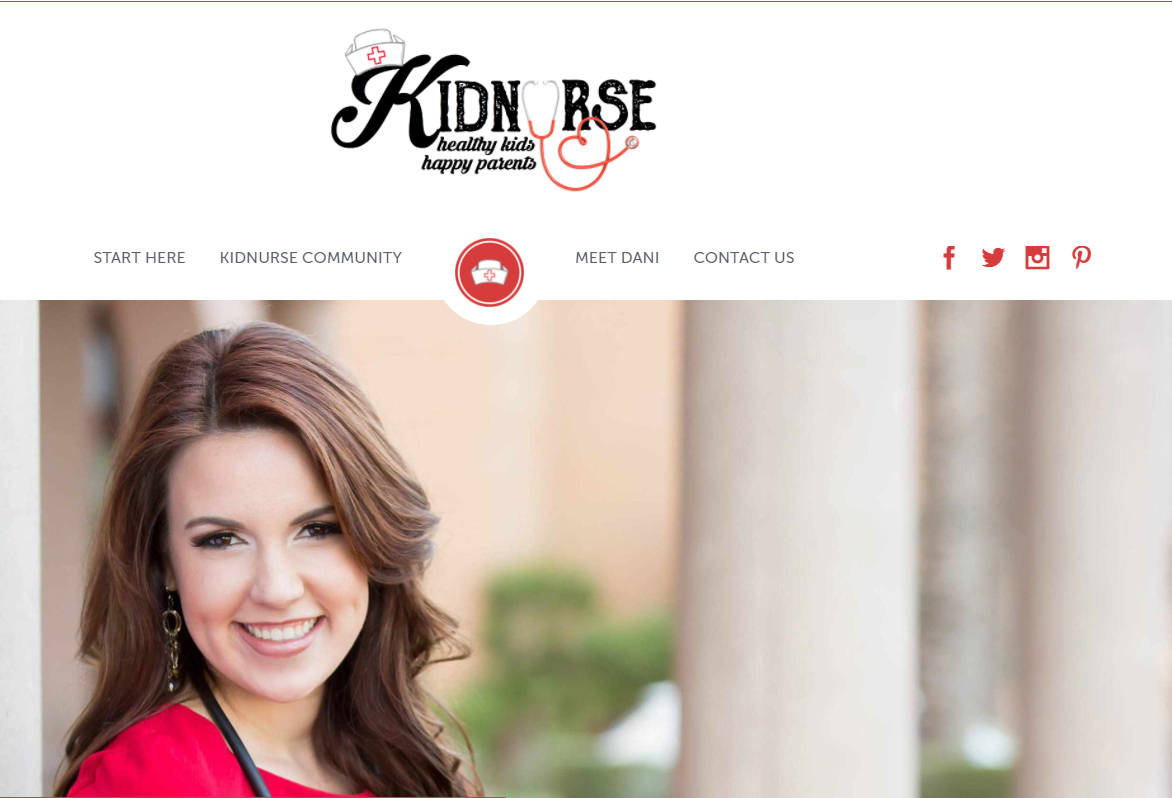A passion for accurate and accessible medical information led Arizona State University College of Nursing and Health Innovation alumna Danielle Stringer to come up with a unique solution.
The pediatric nurse practitioner found that her patients' parents were often turning to the internet in order to get questions answered outside the exam room. The problem was that a lot of what they came across online was inaccurate, contradictory or both.
“I honestly thought the best way to fix the confusion my parents were suffering while reading blogs online was to simply start writing the truth and publishing it myself,” Stringer said.
That’s how KidNurse.org was born.
The content on the site, which has had well over 2 million readers, is timely, easy to understand and reliable.
ASU nursing alum Danielle Stringer launched KidNurse.org to provide parents with accurate, accessible information outside the exam room.
“It has always been founded with the vision of delivering pediatric, evidence-based medicine to parents in a highly accessible format online,” Stringer said.
The name of her website was inspired by her own journey — Stringer became a nurse when she was still a kid herself.
Stringer started taking college classes when she was only 12 years old, first at community college and later transferring to ASU as a teenager.
In 2009, she graduated from ASU's College of Nursing with her BSN at just 17. A year later, she completed her MSN and became a board-certified pediatric nurse practitioner, earning the distinction of youngest nurse practitioner in the country at 18.
“I knew I wanted to be a nurse, and I didn’t see any reason to wait,” said Stringer, who live in metro Phoenix.
One of her nursing professors, Therese Speer, said Stringer was a standout student but it had nothing to do with her age.
“She was an extremely hard worker who challenged herself in everything she did, and she loved every minute of learning. Her patients and families are very blessed to have such a dedicated and caring provider,” Speer said. “I am so proud of her.”
Now, seven years into her career, Stringer is about the same age as most of the parents she works with. She says she can relate to the stage of life the parents are in, adding that it has been an asset in more ways than one in her practice.
“This has allowed me to be highly innovative with my perspective on pediatrics and the development of online pediatric education,” she said.
“She was not one to accept things as they were, but always asked why, what if, could we and how about,”
— ASU Professor Therese Speer
The success of the website inspired another creation.
This summer, Stringer added to her online repertoire creating the KidNurse community, a private Facebook group specifically for moms and medical professionals.
Stringer said the idea behind the private group is to further community and relationships for readers of KidNurse.
“Members are welcome to ask basic pediatric questions and get feedback and encouragement from moms and nurses that have likely been through the exact same thing,” she said.
Even though she has reached success in launching her health-care solutions, Stringer said that doesn’t mean the process was always easy.
Early-on in her career she encountered some serious pushback. First, to the idea of sharing so much information online, and also to her use of social media to reach parents.
Stringer was not expecting that kind of resistance.
“I was surprised to find the amount of health-care providers that are stuck in their ways," she said. "Sometimes innovation makes people uncomfortable."
Stringer said she is grateful for her foundation at ASU, which prepares students to face these challenges by promoting and encouraging innovation. She said that helped her persevere.
Her advice to others is to be prepared for that struggle and don’t give up.
“Resistance to innovative ideas doesn’t mean that innovation isn’t necessary, it just means you’ll have to passionately advocate for it,” Stringer said. “We are at a time in our nation when cutting-edge health-care solutions are desperately needed. Our patients need it. So just be ready to fight for it.”
Top photo: Danielle Stringer interacts with a patient.
More Science and technology

ASU postdoctoral researcher leads initiative to support graduate student mental health
Olivia Davis had firsthand experience with anxiety and OCD before she entered grad school. Then, during the pandemic and as a result of the growing pressures of the graduate school environment, she…

ASU graduate student researching interplay between family dynamics, ADHD
The symptoms of attention deficit hyperactivity disorder (ADHD) — which include daydreaming, making careless mistakes or taking risks, having a hard time resisting temptation, difficulty getting…

Will this antibiotic work? ASU scientists develop rapid bacterial tests
Bacteria multiply at an astonishing rate, sometimes doubling in number in under four minutes. Imagine a doctor faced with a patient showing severe signs of infection. As they sift through test…

